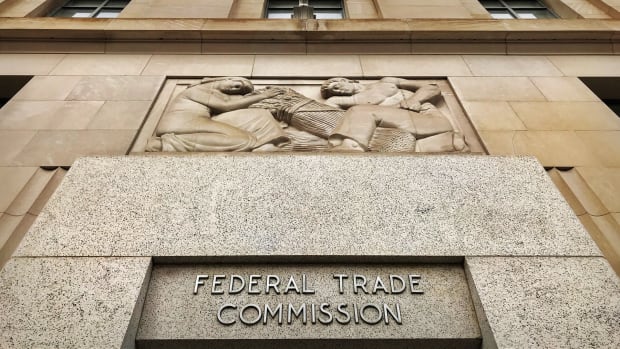Regulators Are Fighting for Your Right to Work for a Rival
The Federal Trade Commission has waged a battle against non-compete agreements.

The Federal Trade Commission has waged a battle against non-compete agreements.
Those who spent some time working in industries such as sales, real estate, media, or any other field that requires building up a client list or personal brand are likely to have come across a non-compete agreement at some point in their careers.
Whether a clause or a separate contract, the agreement limits the information one can take to a competitor. The limitations can be as obvious as "don't take private information you learn on the job to our rivals" to as restrictive as not being able to work or start a business in the same industry for years after leaving.
A regular appearance not just in high-paying corporate jobs but also in fields like retail and construction, these contracts have been catching the attention of the Federal Trade Commission (FTC).
The FTC Fights For Your Right To Work For A Rival
The government branch in charge of regulating business and protecting the public from unfair practices moved to block what it called the "exploitative" practice of imposing agreements that prevent workers from leaving for a competitor or starting a competing business after their employment at the company has ended.
According to the FTC, non-compete agreements are costing workers more than $300 billion a year in lost wages and opportunities and affect more than 30 million Americans.
The FTC's estimate found that between 16% and 18% of the American workforce have had to sign a non-compete at some point in their career. In industries such as tech, over 45% of workers have come across a non-compete in some form.
"The freedom to change jobs is core to economic liberty and to a competitive, thriving economy," FTC Chair Lina M. Khan said in a statement on the proposal. "Noncompetes block workers from freely switching jobs, depriving them of higher wages and better working conditions, and depriving businesses of a talent pool that they need to build and expand."
While the FTC proposes banning all non-competes, the proposal would leave other venues for businesses to protect trade secrets. Shutterstock
The Business World Is Not Happy About This Move
As could be expected, the business world was none too pleased with the FTC's proposal. Immediately after the announcement, the U.S. Chamber of Commerce called it "blatantly unlawful" and disastrous to a company's ability to innovate proprietary products.
Even outside the harm or merit of the proposal, many argue that the FTC lacks the overreach to impose such a sweeping ban.
"Since the agency's creation over 100 years ago, Congress has never delegated the FTC anything close to the authority it would need to promulgate such a competition rule," Senior Vice President Sean Heather said in a statement."The Chamber is confident that this unlawful action will not stand."
Comments like these represent the usual push-and-pull between business interests and protecting workers. While the FTC's role is to protect the latter, actually imposing the proposal will almost certainly come with a lengthy legal battle. Even if passed (the public currently has 60 days to comment before the FTC drafts the final proposal), it will likely be challenged in court by business lobbyists.
President Joseph Biden, meanwhile, has repeatedly backed efforts to regulate non-competes -- both in a 2021 executive order and in a cabinet meeting this week.
"These agreements block millions of retail workers, construction workers, and other working folks from taking a better job, getting better pay and benefits, in the same field," Biden said during the meeting.
What's Your Reaction?



























































